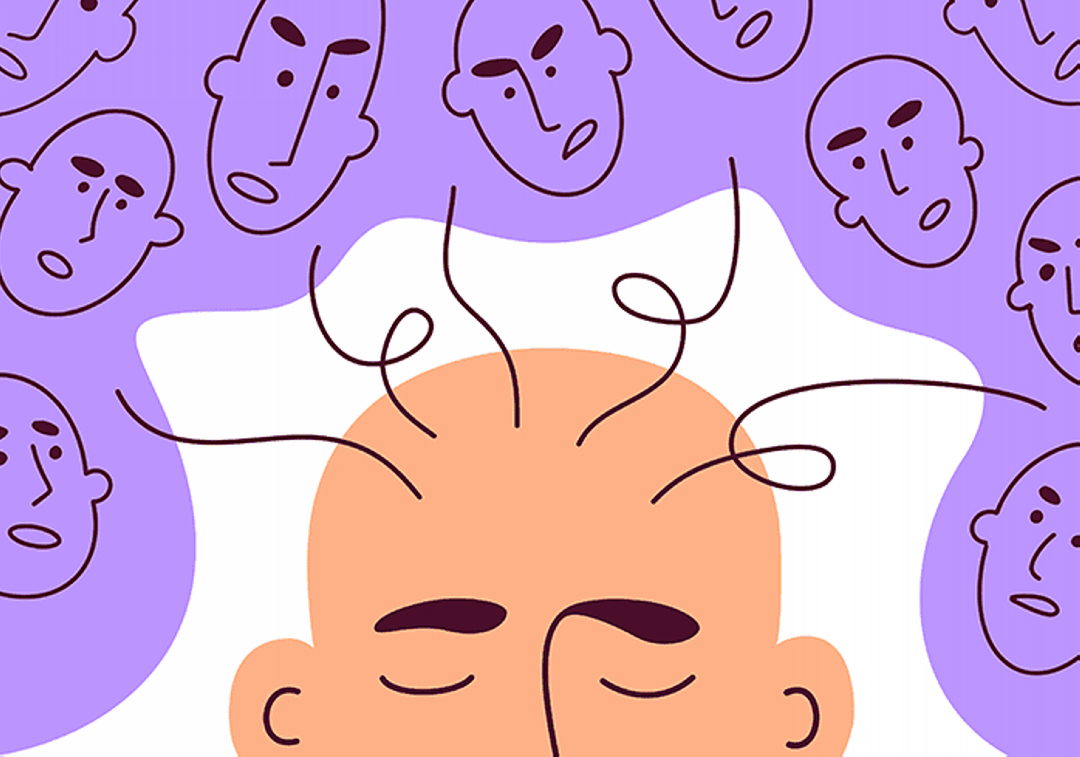I’m not “regular,” though, at one time, I wanted for nothing extra. At 50 years of age, I’m presently a grossly under-employed husband and father, proudly watching my two sons surpass me. The explanations for my present scenario are plentiful, however on the root is my path by means of psychological sickness — and a seamless evolution towards restoration. I wish to joke that I’m a diagnostic alphabet soup: ADHD, PTSD, melancholy, anxiousness. Take your choose, I’ve all of them.
Since first searching for skilled remedy in my adolescence, my journey has prioritized being “regular,” fairly than having open and sincere conversations that would have helped me discover therapeutic. I’ve solely lately thought-about that regular ought to by no means have been my focus. I imagine that regular is a subjective cultural and generational idea, bolstering the stigma surrounding psychological sickness.
“Regular” Doesn’t Imply Wholesome or Blissful
My psychological well being journey started in my pre-teen years after I was unaware of my deep-seated melancholy. I lived within the Appalachian Mountains with my mom and older brother after all of us escaped from a violently abusive family. This was a time when my father might masks his bipolar dysfunction with an 80-hour work week and substance abuse. Nobody questioned the bodily or emotional abuse he doled out, as this was a “regular” response for a person below monetary stress on the time.
I used to be a “latch-key child” within the Nineteen Eighties. For me, this meant primarily dwelling alone in a home of 4. When my ADHD reared its ugly head within the eighth grade, my lecturers determined that it might be simpler to cover me away in “in-school suspension” (ISS) — a six-by-eight-foot closet housing six desks and a one-way mirror for the instructor to watch us. If I wasn’t in ISS, I used to be in one-on-one counseling throughout faculty hours. However these classes didn’t acknowledge the basis of my challenges and even my potential for development — they merely existed in an effort to mildew me into one thing regular. As a result of I might by no means obtain this objective, I used to be quietly labeled as “mentally poor.”
I by no means took algebra; I took client math. I by no means took international languages or additional credit score; I took summer season faculty and obtained psychiatric intervention. This inadequate training and the choice to jot down me off as “poor” had been considered as completely nice programs of motion — simply one other step within the path of regular.
After highschool and a transfer to Michigan, I shortly tailored to a lifetime of substance abuse, growing an dependancy to something in attain. Folks round me didn’t see this as one other manifestation of my sickness — it was seen as a regular approach of appearing out, carried out on the “acceptable” time — in my 20s. 30 years later, I look again and pay attention to how a lot I justified my substance use below the guise of it being seen as regular on the time.
Now, I Perceive the Limits of “Regular”
I lastly realized that spending a long time of my life making an attempt to be regular wasn’t serving me. My struggles — and the inadequate response by the establishments that wrote me off as an alternative of addressing my sickness — continued to influence my well-being. Now that I’ve the reward of hindsight and perspective, I can see how regular acquired me the place I’m right now; a spot the place I’m nonetheless determining deal with my wants and entry acceptable care. After I hear somebody ask me, “Why can’t you simply be regular for a change?” I hear somebody who needs me to suit right into a small field that eases their discomfort, like my lecturers did in class.
I can’t, and not search to, management different folks’s definitions of regular, as these socially-constructed perceptions solely perpetuate stigma round psychological well being points and make it tougher for folks to get well. Now I do know that regular doesn’t matter; as an alternative, I concentrate on wholesome. The idea of reaching a state of wholesome dwelling gives two distinct benefits: It’s self-defined, and it permits for particular and achievable objectives. Wholesome considers the fact of the scenario (irrespective of how uncomfortable) and permits me to tailor my care to my wants.
Attaining well being is dictated by means of my selections and objectives, nobody else’s. It’s an acute consciousness of my psychological and bodily thresholds — and a deep respect for them. Wholesome will not be about how I react to you, however fairly how I acknowledge myself as somebody who can obtain greater than regular.
Erik A. Magnuson is father and husband dwelling in Central Florida. He has a ardour for instructing and psychological well being consciousness. For the reason that early Nineteen Eighties, Erik has been working by means of points surrounding many psychological well being points, together with melancholy and ADHD. He proudly graduated as an occupational therapist assistant and has been working in well being care since. He hopes to deliver a useful outlook to psychological well being care and training.
This Psychological Sickness Consciousness Week, the NAMI HelpLine is right here for you. In case you or somebody you already know are dealing with psychological well being challenges, attain out to the NAMI HelpLine for assist, sources and sensible subsequent steps. The NAMI HelpLine will be reached Monday by means of Friday, 10 a.m. – 10 p.m., ET. Name 1-800-950-NAMI (6264), textual content “HelpLine” to 62640 or e-mail us at [email protected]



